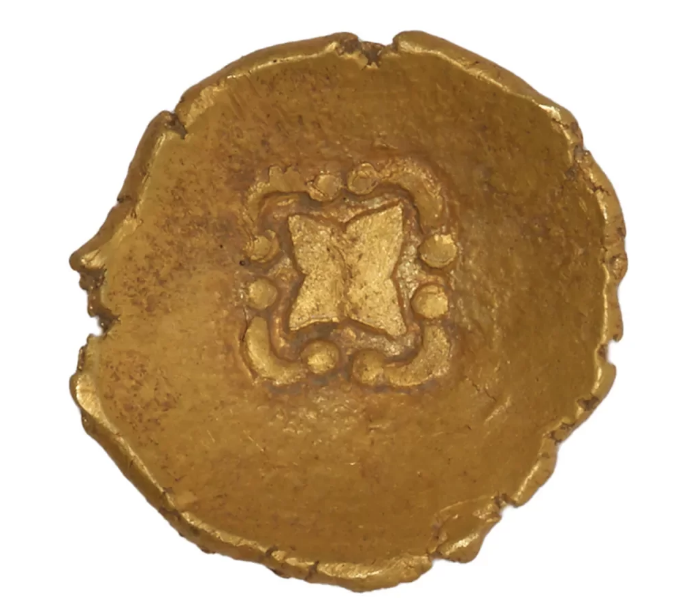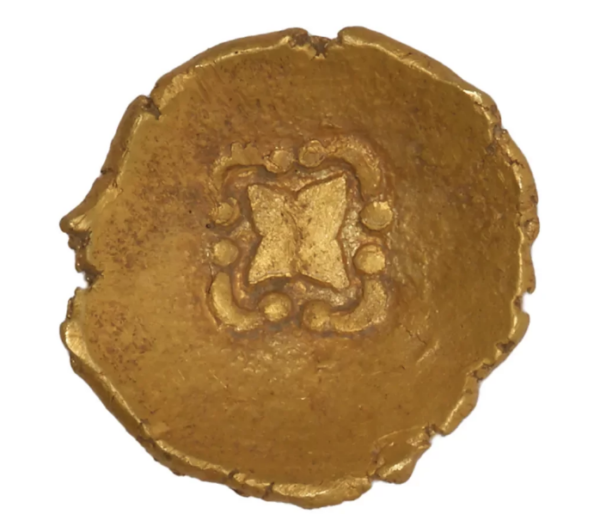#Great #Discoveries #Rare #Rainbow #Cup #Gold #Coin #WorthPoint

Image Source: Stefanie Friedrich, Archaeological State Collection (Munich) via livescience.com
Finding a pot of gold at the end of the rainbow may be impossible. However, there may be a chance of finding a “rainbow cup” Celtic coin instead.
Folklore claims rainbow cups are gold drops that have fallen to the earth at the end of a rainbow. And recently, a rare rainbow cup coin dating back to the second or first century BC was found next to the Lech River in the German state of Bavaria, according to Arkeonews.
This particular coin has a four-pointed star design with arches on one side. It is one of four known examples of rainbow cups with these markings and the only one with a confirmed find location.
The coin discovery is considered “extremely rare,” Live Science reported. Previously, the oldest Celtic coins found in Bavaria dated back to the third century BC. Celtic minting stopped following the Roman conquest of the region in 15 BC.
At this point, it is unknown how the Celtic coin ended up in Bavaria, Bernward Ziegaus, a senior curator in the Bavarian State Archaeological Collection’s numismatic department, told Live Science. Ziegaus pointed out that the found coin was near an ancient road across the Alps. The coin may have been “lost along the way” by a traveler, he stated.
Additional research is being completed to learn about the rainbow cup coin’s origins. And in 2024, the Bavarian State Archaeological Collection will put the coin on display, Ziegaus said.
Those who want to view Celtic coins can see thousands of examples in the WorthPoint database.
Dan Kobialka is a self-employed content writer and editor with about a decade of experience. He produces content across a wide range of industries, including antiques, insurance, and real estate. To learn more about Dan, please visit his website.
WorthPoint—Discover. Value. Preserve.




